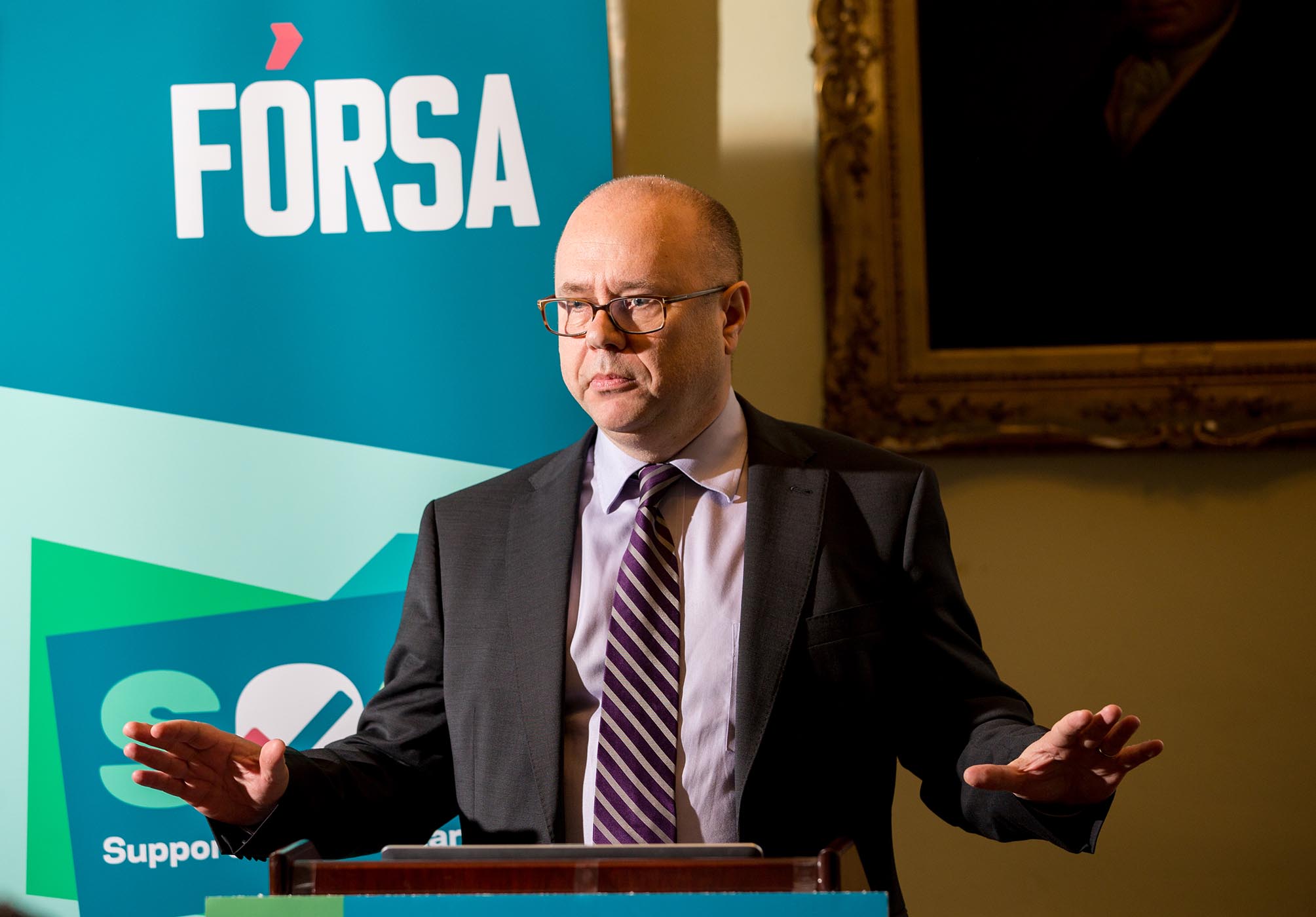Governments across Europe must shun austerity and take an imaginative approach to the huge fiscal and economic challenges that the coronavirus has unleashed, according to Fórsa general secretary Kevin Callinan.
Kevin has established a team to work with other unions and progressive organisations to build support for alternative post-Covid recovery proposals that avoid the mistakes made on foot of the 2008-2010 banking crisis.
“We will need a credible plan that offers hope for the future, while commanding sufficient popular and political support,” he said.
We will need a credible plan that offers hope for the future, while commanding sufficient popular and political support.
The move came as the International Monetary Fund (IMF) added its weight to predictions of the worst global downturn since the 1930s. In its latest world economic outlook report, the Washington-based organisation says the Eurozone is in line for a 7.5% contraction, while the global economy will shrink by 3% this year.
Callinan said the EU and its member states must acknowledge the scale of the crisis and step up with a bold and imaginative response. “Once the health crisis abates enough for us to properly assess the economic damage, the priority will be to kick-start our economies and maintain living standards, not to pay back debt.
“Over the last few weeks, we’ve seen what can be achieved when the State mobilises financial, organisational and human resources for the common good, when people work together collectively, and when citizens have equal access to essential goods and services. The next challenge will be to embed these principles into our economic, social and business model on the other side of the emergency,” he said.
Over the last few weeks, we’ve seen what can be achieved when the State mobilises financial, organisational and human resources for the common good, when people work together collectively, and when citizens have equal access to essential goods and services.
Kevin said the deal hammered out by EU finance ministers last week was totally inadequate to the scale of the challenges. “The distinction they made, between debt directly associated with the virus and debt that isn’t, may look like fancy footwork today, but it will seem laughable when the full cost of economic recovery emerges,” he said.
The distinction they made, between debt directly associated with the virus and debt that isn’t, may look like fancy footwork today, but it will seem laughable when the full cost of economic recovery emerges.
Meanwhile, the president of the European Commission has Ursula von der Leyen has said the European Union’s next seven-year budget should be a ‘Marshall Plan’ capable of rebooting the European economy in a similar way to the approach adopted after the Second World War.
She warned EU countries to put aside entrenched positions on foot of last week’s testy discussions between EU finance ministers.
In a shift from past practice, Ireland added its name to a nine-nation call for EU states to share debt incurred on foot of the Covid-induced economic shut-down.
But the idea is opposed by countries including the Netherlands, Germany, Finland, and Austria, where there are concerns about becoming liable for the debt of struggling economies.

